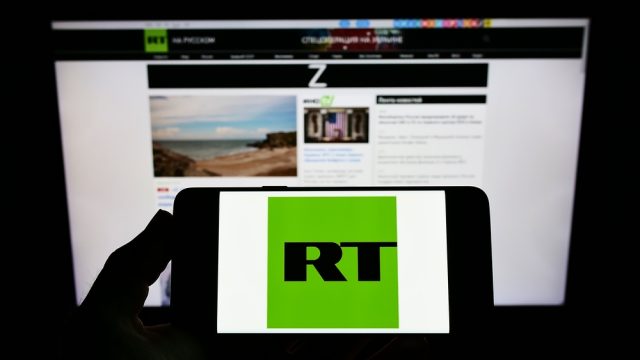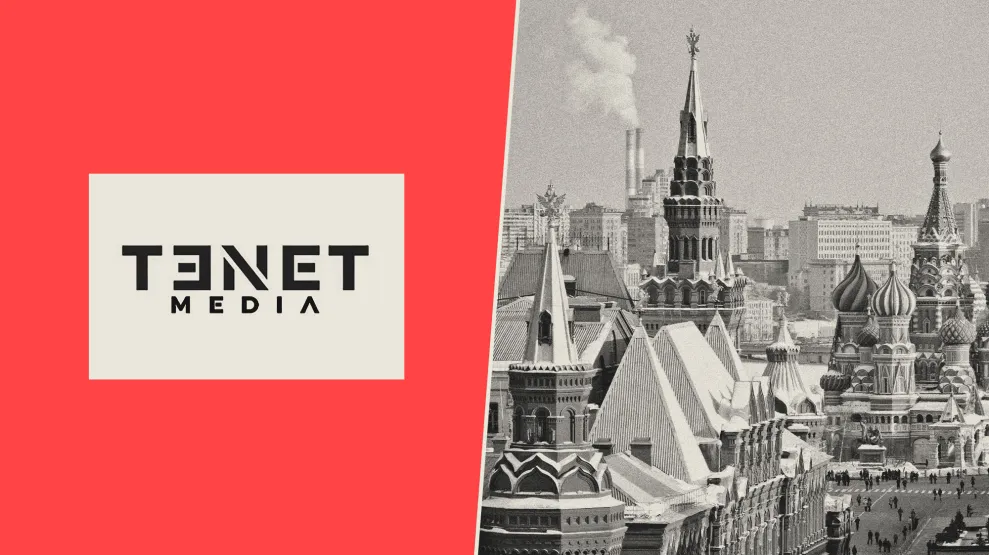Russian influence behind Tennessee-based media outlet, alleges US Justice Dept
 New Charges Claim Conservative Media Outlet Received Millions in Funding from the Kremlin. (Photo via Daily Beast)
New Charges Claim Conservative Media Outlet Received Millions in Funding from the Kremlin. (Photo via Daily Beast)
In a groundbreaking indictment, the U.S. Department of Justice (DOJ) has accused a Tennessee-based media company of receiving millions in funding from Russian operatives as part of a Kremlin-backed influence campaign aimed at the 2024 U.S. elections.
The company, known as Tenet Media, has ties to right-wing social media influencers with massive online followings, including YouTube stars and political commentators.
The DOJ’s investigation shines a spotlight on how foreign governments attempt to sway political opinions in the U.S. by funding media outlets and promoting divisive content.

Russian funding network
The indictment alleges that two employees of Russia Today (RT), a state-controlled media outlet, funneled approximately $10 million into Tenet Media. This funding, according to prosecutors, was meant to push pro-Russian narratives by amplifying content that favored candidates more aligned with Kremlin interests, particularly Donald Trump.
Key elements of the funding network include:
- $10 million funneled through RT employees to Tenet Media.
- Pro-Russian content aimed at influencing US political discourse.
- Content favoring Republican candidates, especially Donald Trump.
The indictment represents a significant move in the DOJ’s ongoing efforts to curb foreign interference in U.S. elections.

Tenet Media: A platform for right-wing commentators
Tenet Media is home to well-known conservative voices in the U.S., many of whom have large followings across social media platforms like YouTube, X (formerly Twitter), and Instagram. Some of the most prominent figures associated with the platform include Benny Johnson and Tim Pool, both of whom boast millions of subscribers. Their content is widely consumed by right-wing audiences, and they maintain that they were unaware of the Russian funding behind the company.
Key figures on Tenet Media
- Benny Johnson: Conservative commentator with millions of followers.
- Tim Pool: Popular YouTuber who interviewed Trump earlier this year.
- Lauren Southern, Dave Rubin, Tayler Hansen, and Matt Christiansen: Other notable influencers on the platform.

Both Johnson and Pool have issued public statements claiming they did not know the Russian funds and emphasized their editorial independence.
“We are disturbed by the allegations in today’s indictment, which make clear that myself and other influencers were victims in this alleged scheme,” Johnson wrote on X.
Kremlin’s broader influence campaign
The DOJ’s findings on Tenet Media are part of a larger Russian influence operation targeting the 2024 US election. The Biden administration has imposed sanctions on 10 individuals and entities associated with Russian disinformation efforts, seizing 32 internet domains used to spread false narratives.
These efforts by the Kremlin aim to:
- Push disinformation across multiple social media platforms.
- Favor Trump or any Republican candidate viewed as pro-Russian.
- Use fake online profiles to amplify these narratives.
U.S. Deputy Attorney General Lisa Monaco stated that Russian President Vladimir Putin personally directed these influence campaigns, further heightening concerns about foreign interference.

Russia Today: The Kremlin’s propaganda arm
The involvement of Russia Today in the funding scheme points to a larger, long-term strategy by the Russian government to influence foreign elections. RT has been widely recognized as a tool for spreading Kremlin propaganda and disinformation, especially targeting Western audiences. Although formal RT operations in the U.S. were shut down after Russia invaded Ukraine, the outlet continues to disseminate content online.
Key points about RT’s role:
- RT has been a major source of Russian propaganda for nearly two decades.
- The outlet was forced to cease operations in the U.S., but it continues online.
- RT employees funneled money to Tenet Media as part of a disinformation campaign.

Response from Tenet Media, commentators
Despite the serious nature of the indictment, Tenet Media and its associated commentators have denied any intentional wrongdoing.
Many of the influencers claim they were misled about the source of the funds and maintain full editorial control over their content.
Statements from Tenet Media commentators:
- Tim Pool: Claimed he and other personalities were “deceived and are victims.”
- Benny Johnson: Said his lawyers negotiated a standard contract and expressed concern over the allegations.
- Matt Christiansen: Emphasized that all content came from him and was not influenced by external forces.
As the investigation continues, Tenet Media’s future remains uncertain, with more revelations likely to emerge as the DOJ digs deeper into Russia’s influence operations ahead of the 2024 U.S. election.



